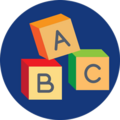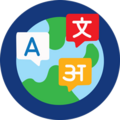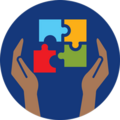Show Notes
What is “Culturally Responsive Mathematics?”
Using the National Council of Teachers of Mathematics (NCTM.org) definition, Culturally Responsive Mathematics seeks to promote a positive mathematical identity in students by providing tasks that are relevant, personal and meaningful to students.
What does this approach look like, how does it differ from previous approaches to teaching mathematics, and how are students in Washtenaw, Oakland and Wayne County responding to this Tri-County initiative?
Join us as we learn from our regional experts, who are pioneering this work across our three counties:
- Jennifer Banks, Ph.D., Director of Instruction, Washtenaw ISD
- Yarisha Johnson, Mathematics Education Consultant, Oakland Schools
- Cherron Ramsey, Mathematics Education Consultant, Wayne RESA
Intro Music by Wataboi from Pixabay
Length - 25 minutes
Transcript
Kyle Gnagey: Welcome to our first episode of season three of Getting to the Core. My name is Kyle Gnagey, and I am very honored to welcome today three guests who are working as part of a tri-county consortium from three different is ISDs. They've been doing some excellent work on some culturally responsive mathematics, and they have been running this week, in particular, the Tri-County Culturally Responsive Mathematics Summer Institute.
So, I’m joined here today with Dr. Jennifer Banks, who’s the Director of Instruction at Washtenaw ISD. And we're joined by Yarisha Johnson is the Mathematics Education Consultant at Oakland Schools, and our own Cherron Ramsey, who is a Mathematics Education Consultant here at Wayne RESA Thank you all for joining us.
Cherron, Yarisha, Jennifer: Thank you for having us.
Kyle Gnagey: So, I just have to ask starting out: What would we say is the best definition for culturally responsive mathematics?
Cherron Ramsey: I’ll jump in with that one, Kyle. When we think about, especially the work that we're doing, we have really leaned into the work of Dr. Gloria Ladson-Billings and Dr Geneva Gay. And we're really thinking about defining it, as, you know, an approach to that really brings who the students are into that classroom. Not only their cultures, but also learning about the cultures of others. How do we provide spaces, not only to leverage who they are, but how they can apply mathematics in the world around them? Why is it relevant to them? So, really thinking about those three tenants that Dr Gloria Ladson-Billings mentioned, which are student achievement and just redefining what we mean by student achievement and looking at it more individual basis. Cultural competency, and again that's bringing who the students are into that classroom and not only who they are, but learning about other cultures as well. And then, this important piece is that criticality piece and really thinking about how you can use what you learn to make this world a better place. How are you going to use that information? So, that's how we get kind of generally frame what culturally responsive mathematics means.
Kyle Gnagey: That's really great. And you, sort of, already covered this, but what would you say, are the really the key differences between culturally responsive mathematics and, like, how mathematics is being taught currently?
Yarisha Johnson: Sure. I’ll lean into that question. So initially, with one a name; there's multiple ways that it might be different from a traditional mathematics experience. The first thing that would name about a culturally responsive space is that the teacher is leaning into their understanding of neuroscience, which tells us that all people learn best, learn new information best, when it's connected to our previous understandings. And so, a culturally responsive teacher having that understanding will make sure that they are taking what's most meaningful, what's most valuable, connect it to students home, community and integrating that into that mathematics learning experience. Additionally, a culturally responsive teacher is going to be extremely reflective. This is someone who is asset based, right? They know that their kids have something to bring into that classroom. And so, with that, that teacher is reflective about their own practice. They're thinking about what are the experiences that I’m going to create for them. How might I do that most effectively? And in order to do that, they have to interrogate their own thinking, so they're thinking about their own bias.
And their bias, not just as it pertains to race, although they're thinking about that, because we know that it does exist, but also with respect to their thinking about mathematics. We know we live in a society where many people believe that only certain people can engage in mathematics productively. And so, a culturally responsive teacher knows that all students have the capacity to engage in mathematics success, excuse me, successfully and productively and they are leveraging what is most meaningful to their students to integrate into that classroom experience. So, those are some of the differences that you would see within a culturally responsive mathematics space.
Kyle Gnagey: That's really good. I really appreciate that; and what would you say, is the reason that this came about? Like, what was the inception to this work?
Dr. Jennifer Banks: Okay, I can lean into that question. And so, I think the work came about for variety of reasons. Within our three counties, we saw that there was a need for culturally responsive mathematics. When you look at the data and how students are performing across three counties by demographics, there's clearly there's some imbalance happening. And culturally responsive teaching is one way that we thought to overcome that. And so, initially we were each doing individual things with our respective ISDs to try to attack that problem and Yarisha was… came up with the idea of the three of us coming together, to band together, to really fight against that; and that kind of led to what we now have the Tri-County Culturally Responsive Mathematics Institute.
Yarisha Johnson: Yeah, I just want to add to that. Thank you so much, Jennifer, for what you lifted. I want to add to that Dr. Banks began to just kind of lift the data, and we know that across our state only about 36%... I may it may be a little lower… from the 18-19 college readiness mathematics scores were considered to be proficient. And so, 36% of all students! And so, I’m naming that because I think typically when people hear culturally responsive teaching, they are only thinking about black and brown students, they're only thinking about are students who speak multiple languages. But we're saying is that all students can benefit from having a culturally responsive experience that is absolutely necessary. And so, I think that was another one of the reasons that we decided to join forces and to focus our work in this way.
Kyle Gnagey: That's great, and Dr Banks mentioned, Yarisha, that you had the idea to band together, I really like that. I, kind of, question to all of you: What are other advantages of working together as a tri-county consortium, rather than just trying to tackle it within our own counties and ISDs and districts?
Cherron Ramsey: Well, I’ll add that there's strength in numbers, you know, and I think, you know, us putting our minds together really thinking about how to do this work and how to do it effectively has been a benefit for all of us. We're learning from each other, as well as learning from the teachers and the students and the administrators that are in the room. Just being able to even have conversation and collaborate across counties, because things that may happen in Oakland County might be different than things that's happened in Washtenaw or Wayne County and having that perspective from different people to help support the work has been invaluable. Like, it's been such a great opportunity to hear, you know, what's going on and what it might look like in a different county or a different neighborhood or a different community. I think that's the power in in us being able to work together and collaborate.
Dr. Jennifer Banks: Yeah, I would agree with that, and just to add on to that, I think, also, like, we were all doing something within our respective counties, but I think the impact has been greater because we're doing it together, right? And Washtenaw, we had our Responsive Teaching Institute, which was something, right? But Tri-County has taken it to the next level, because now we're bringing teachers and students and preservice teachers to the table; something I couldn't necessarily do by myself, right? So, to me, it's going back to what Cherron said, you just are stronger together.
In addition to that, I’m gonna be honest, it's been truly a gift to work with Yarisha and Cherron who are two black women in the math consultant position. That, I was initially like, “Hey, this is uncommon! This is an anomaly in our state!” And so, for me, that's an added benefit.
Cherron Ramsey: Yeah, absolutely. And it's wonderful working with you as well
Yarisha Johnson: Yeah, absolutely. And I just want to name that it was for me, it was really Dr. Banks’s work initially that really inspired me to go further in this space because I had an opportunity to go to the Responsive Teaching Institute that she was facilitating in Washtenaw. So, it was in that space that I was thinking we should take it further, with the creation of tasks so people have some specific examples that they can lean into around the work, because I feel like. that's always the question: what does it look like? But when we say culturally responsive mathematics we can talk about it all day, but what does it look like? Teachers need to be able to see that. So, I think that was a part of it, too, and it was definitely me being inspired by the work that was happening in Washtenaw
Cherron Ramsey: Absolutely.
Kyle Gnagey: I really appreciate that. And, I can actually agree with you. I mean, I had the pleasure, as you all know, of joining you at the Meaningful Mathematics and STEM Showcase that you all hosted at Eastern. I’m so glad I got to be a part of that, and I can say I just remember the faces of all the participating students, there were just lit up with the many different things that you put together and the way that you engage them. I particularly was impressed by some of the interviews that we had with students, where they identified specific problems that they wanted to address and were using metrics and data and all that to address and just… they were very confident in what they were saying; they were very interested and, you know, just that immediacy between, you know, mathematics and, like, an actual issue to solve in the community was really, really engaging. And so, then I just have to ask, because, of course, I haven't been part of the summer institute that's going on this week. I mean, what is the response from the students?
Cherron Ramsey: Well, you know, Kyle, like, what you just mentioned is so phenomenal because, you know, this is what they came up with. Nobody said, “Do this…this is the idea that I want you to work on.” This is something that generally authentically. The students said, “I have an interest in this,” and, I mean, for them to just be so engaged in the process, and like you said it really brought them to life. And, you know, this alleviates that, “When am I ever going to use this? Why do I need to know this?” because now they're…it’s application. They are doing it, they understand why they're doing it, they know you have a goal, they want to find out something, they want to solve a problem, they want to bring awareness. They get excited about it, because it's their work and it reflects who they are and what they believe.
Dr. Jennifer Banks: It's a personal motivation that as a math teacher, you always wanted your kids to have, right? But when it becomes their work, the excitement and the joy that they feel from their work. I mean, the Meaningful Mathematics Institute… I’ll never forget: two boys come to me… I was, “I think I didn't get a chance to see your presentations,” and they did, like, busted out their phones and gave me the presentation; like, they were so excited about their math and what they had learned. That's what we want every classroom to be like.
Yarisha Johnson: Now, I’ll add this about the summer institute last week and this week: we have students engaged with teachers, learning with teachers, and creating with teachers. So, it's been so beautiful to hear our students say, “I did not realize what… the time, the energy, the effort that my teachers put into creating that learning experience.” So, this is just like a bonus, because I don't think we were thinking about that aspect of it; but the students who are participating are walking away with a new appreciation, not just for the learning experience, but for the teachers, because of their commitment to do it. So, it's been really beautiful.
Cherron Ramsey: And I, you know, add also, you know, it's an opportunity for students to really grow. I know, one of the students that mentioned at the showcase, you know, it's quite… at the end of week we had an opportunity to just, kind of, have a conversation, a real conversation and one student raised their hand and it's like, “You know what? When I got here I didn't I just really didn't like math, right? But now it's this is like different for me.” At that point, like we are changing the game, you know, and changing the mindset of students and they're like… that excitement that it creates is just that; that makes everything all worth it. It makes it worth it.
Dr. Jennifer Banks: Yeah. I think about like last year of Summer Institute and then, the one student who was like, “I’m not a math person,” go, “Actually, I am a math person. I just need to see myself in the mathematics.” Like, that right there to me, is a golden ticket for us all; every student needs to be to see themselves in the mathematics.
Kyle Gnagey: That's really great. And so, you know, where do we go from here? Like, what's the next step and what's the long term?
Cherron Ramsey: Oh Kyle, that's a loaded question. Well, and I’ll start off and Jennifer you should please jump in. You know, as we continue to do this work, you know, we've been asked to expand what we're doing statewide. So, you know, really thinking about, you know, especially this year with the Summer Institute, we were able to offer it to some of MISTEM regions. And the plan is to continue to expand it, you know, to the State and just kind of think about what else can we do and how else can we spread the word. I mean, just our summer institute year one to year two almost tripled in numbers and that's just from one year. So, just thinking about, you know, what the impact is going to be for next year, and, you know, where our numbers are going to be. So, we're really just thinking about, “Okay, how do we maintain this? How do we manage this?” You know, because it is growing on his own just because, you know, it's good work and it's speaking for itself.
Dr. Jennifer Banks: Yeah, the work from last year to this year is, you know, a lot of growth. And then we have the leadership conference in September, the meaningful mathematics we’re bringing back. I think we had 200 kids last year or close to 200 kids and I’m confident that will be expanded this year. I don't even want to think about what the summer institute might look like next year in a good way. So, I think there's just more opportunity, a bunch of opportunity, to expand this work and really be not say culturally responsive teaching is something new, but it's the norm.
Cherron Ramsey: Yes.
Yarisha Johnson: Yeah, I agree. I’m thinking about awareness, you know? We are in a climate right now, where so many things are so highly politicized, and so, I think awareness, I think if people understood what culturally responsive mathematics is, what culturally responsive teaching… what it is, and they understand the impact that it can have on their student learning, I think that more people would be committed to learning it, be committed to ensuring that they are creating those experiences for their students. So, I’m excited about us being able to share with you today and I’m excited about continuing to increase awareness around the world, so that more students more teachers have access to more meaningful mathematics experiences.
Cherron Ramsey: Yarisha, as you as you were talking, it made me think about just last week, one of the reflections and the feedback from one of the teachers I just going to read a little bit of what this particular teacher said. He or she said, “It's changed my perspective, and how I think about education in general. it's made me reflect on my own educational experiences, too. Overall, I was a little nervous about the idea of coach responses that mathematics teaching but I’m pleasantly surprised and totally on board with the now that I have learned about it and its benefits.”
So, this is after one week of the two-week institute it's already shifting perspective of a teacher that may have had been, you know, nervous about it. I mean, this work is not easy. It is not easy, you know? It takes a commitment, it takes self-reflection, it takes a shift in mindset, it takes readiness, it takes, you know, some pushback; it takes all of these different things that you're going to face when you're when you're doing this type of work. At the end of the day, when you see those students’ faces and you see students really engaging in mathematics and their hands are all up and they're excited about what they're doing.
Yarisha Johnson: Deepen understanding.
Cherron Ramsey: Deepening your understanding, right? Then now, they know the mathematics and they know how they can use it. Those are the things that make, you know, the pushback and all the learning and that deep self-reflection, because as teachers as educators, we have to think about how are we showing up in in our classrooms? How are our beliefs and what we… how do they show up to our students, right? We all carry biases regardless of who we are, what color are skin is. We all carry biases and those things show up, right? Whether we want them to or not. So, we have to think about how are we bringing awareness to those, how will we make a shift to change those so that we can make the changes that we need, to make it so that every student in our classroom feels like they belong in that space and do the work that's being presented to them and feel like they are a part of what's going on. And if they don't feel like that, what can you do to change it? What are we doing as educators that make our students wants to come in our class every day?
Dr. Jennifer Banks: We can't change things that we don't face.
Yarisha Johnson: Exactly, yes.
Dr. Jennifer Banks: We have to be willing to do that hard work. I truly believe that educators became… went into the profession because they love students. They want to educate kids. They want them to learn the information, and so, if we really are committed to that, then we have to be committed to the hard work of doing that self-reflection that self-work, so that when we come into the classroom we are giving our very best selves and we are expecting the very best from our students.
Yarisha Johnson: That's right.
Cherron Ramsey: We had one of our facilitators, Dr. Aris Winger, made a statement a couple of days ago and I just thought it was… just stuck with me and he said that if we don't acknowledge culture, it is our own that will dominate. Okay, so we really don't think about who's in our classroom then who we are and what we're used to in our culture is going to be what shows up and that may not really be what the students resonate with or what they connect with.
Kyle Gnagey: That's very well said. I really, really appreciate each of you taking the time to come in. You are obviously… each of you, very passionate about this work. It is very, very exciting to hear what you've been doing, how it's been growing and your passion is just evident, very evident. And we're so we're so fortunate to have all of you, working on this in this tri-county effort together. And I’m really pleased to see the collaboration blossom, and, you know, like you're saying just the students are so interested and, so passionate and the programs… I really look forward to the next, things that you guys have planned. You said something… Can you clarify what's up in September?
Dr. Jennifer Banks: So, we have our Leadership Institute, am I saying that right? Conference? Our Leadership Conference is scheduled for September 22. It will be an all-day conference, and it will be for both teachers as well as building leaders and then it will go from 9am to 6pm.
Yarisha Johnson: It’s virtual and we’ll be sharing that out.
Cherron Ramsey: You want to share a sneak preview of some of the facilitators…the lineup
Yarisha Johnson: Oh, yeah…
Dr. Jennifer Banks: Dr. Christopher Emden. Dr. Gholdy Muhammad will be joining us. Dr. Yolanda Sealey-Ruiz, Dr. Richard Milner, I mean, I feel like I’m missing some.
Yarisha Johnson: Dr. Bettina Love
Dr. Jennifer Banks: Dr. Bettina Love…How can I forget Dr. Love…
Cherron Ramsey: You got Nathan Alexander, Dr. Aris Winger…
Yarisha Johnson: Dr. Curtis Taylor, Dr. Seada…
Dr. Jennifer Banks: Dr. Seada will be there as well, Dr. Pamela Seada…
Cherron Ramsey: Dr. Muhammad Khalifa
Cherron Ramsey: So, there's an awesome lineup some powerful, powerful presenters and speakers and just advocates for this work. And we have it from an administrative perspective to a teacher perspective, to just really, you know because, in order for teachers to feel like they have permission – quote, unquote – to do this work they have… the administration needs to understand what it is, what it looks like, and support it. So, you know, offering, you know, opportunities for administrators and leaders to learn about what it is and what we're talking about is another thing that is really important to us; we definitely want to make sure we're providing space for them to learn about what their teachers are doing what their teachers are excited about doing.
Yarisha Johnson: I just wanted to, just want to lift, in addition to our fall Leadership Conference, we also have our speaker series, which we were really focus on our teachers, providing learning for them throughout fall and spring. We had the Meaningful Mathematics Showcase, which you spoke about, we have our Summer Institute which you named… so just want to lift that we're doing a lot of things and so I’m hopeful that those who are listening will look out for all of those opportunities.
Kyle Gnagey: I agree with that. I certainly hope so and we will, you know, be coupling as much material, as we can with this podcast. So, if you look on our website resa.net/podcast, where you are undoubtedly there right now, you should find the related information to this incredible work happening in the tri-county area. I want to thank each of you: Dr. Banks, Cherron, Yarisha…Thank you, guys, so much for… after a long day at the Institute coming on in and telling us how great it was and how great it’s going. We're very fortunate to have each of you working on this very, very important work. So, thanks again!
Yarisha, Cherron, Jennifer: Thank you.








